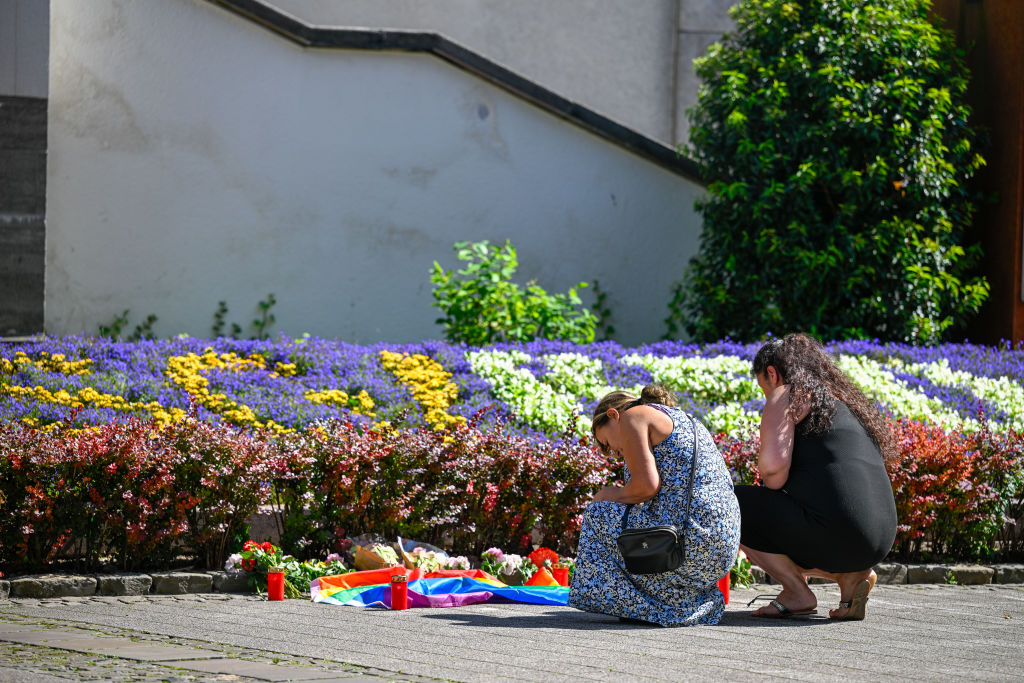Cologne
Here in Cologne, about 15 minutes away from the city of Solingen, shock sits deep and tempers run high. It was in Solingen at the end of last week that a Syrian refugee was arrested for killing three people and wounding eight more, some of whom suffered life-threatening injuries in the knife attack.
With important regional elections in eastern Germany on Sunday, all parties are keen to be seen to respond to the atrocity. But the public doesn’t need political posturing. Voters will want to see realistic proposals to address the security risks posed by mass immigration over recent years.
Since Islamic State claimed responsibility for the attack, much of the immediate discussion has revolved around terrorism and knife crime. Interior Minister Nancy Faeser, from the Social Democratic Party, proposed last week that the length of knives people are legally allowed to carry should be reduced from 12 centimetres to 6 centimetres, and that switchblades should be banned altogether. Vice Chancellor Robert Habeck of the Green Party also demanded stricter laws on weapons and more no-knife zones.
For many Germans, this debate looks like fighting the symptoms rather than the root of a problem which goes much further than this latest incident. In a survey last month, just over half of Germans said they still felt safe in public spaces. In 2017, it was still three-quarters. This is not just due to terror incidents. In 2023 alone, violent crime rose by 8.6%. The proportion of non-German suspects of all reported crimes rose to 41%. The last time the figure exceeded 40% was in 2016, the year after Angela Merkel allowed around 1 million migrants into the country.
Even with Germany’s generous policy towards refugees, hundreds of thousands of illegal immigrants live in the country, with estimates extending to over half a million. This poses an obvious security risk, but one that has rarely been discussed in public, often for fear of fuelling the rise of the far-Right Alternative für Deutschland.
Yet it’s precisely this lack of honest debate on the consequences of failing to control mass immigration that has helped the AfD gain support in recent years. In 2015, when the party — then only two years old — first gained prominence due to the refugee crisis, many voters saw no way of expressing their concerns.
Merkel, who had made and defended the decision to open the borders, was heading the Christian Democrats (CDU), nominally Germany’s conservative party. A vote for the CDU was a vote for her refugee policy; the other main parties stood with her or further to the Left. The only way to register concern at the ballot box was to turn to the far-Right of the spectrum. And so the next federal election in 2017 saw the AfD gain seats in parliament for the first time, immediately entering as the third-largest party.
Post-Merkel, the CDU has now recognised that leaving concerns over mass migration to the AfD equates to handing the far-Right party a political monopoly on an issue that is deeply important to many Germans. Following the Solingen atrocity, CDU leader Friedrich Merz has said that “knives aren’t the problem but the people who walk around with them.” In a strongly-worded public letter published on Sunday, bearing the title “Enough!”, he called on Chancellor Olaf Scholz to work with him as opposition leader on introducing effective measures to change immigration policy.
One can dispute whether Merz’s proposals are realistic. He is demanding a complete refusal of asylum applications from people from Syria and Afghanistan, which may prove legally difficult. But the signal that Merz is willing to rethink immigration policy as a whole seems to have been heard by voters.
The first poll taken in the aftermath of the Solingen attack shows an increase of 1% for the CDU, meaning the centre-right party would comfortably win an election with 31.5%. The AfD lost half a point. Whether this will have an immediate impact on the regional elections on Sunday remains unclear, but the signal is worth taking on board for Germany’s established parties.
People want to talk about the fact that they feel less safe in the streets of their country, and they want to see measures taken to improve the situation. Not talking about the drastic way Germany has changed since 2015 won’t stifle the debate. Instead, it will only leave the matter to the AfD.











Join the discussion
Join like minded readers that support our journalism by becoming a paid subscriber
To join the discussion in the comments, become a paid subscriber.
Join like minded readers that support our journalism, read unlimited articles and enjoy other subscriber-only benefits.
Subscribe